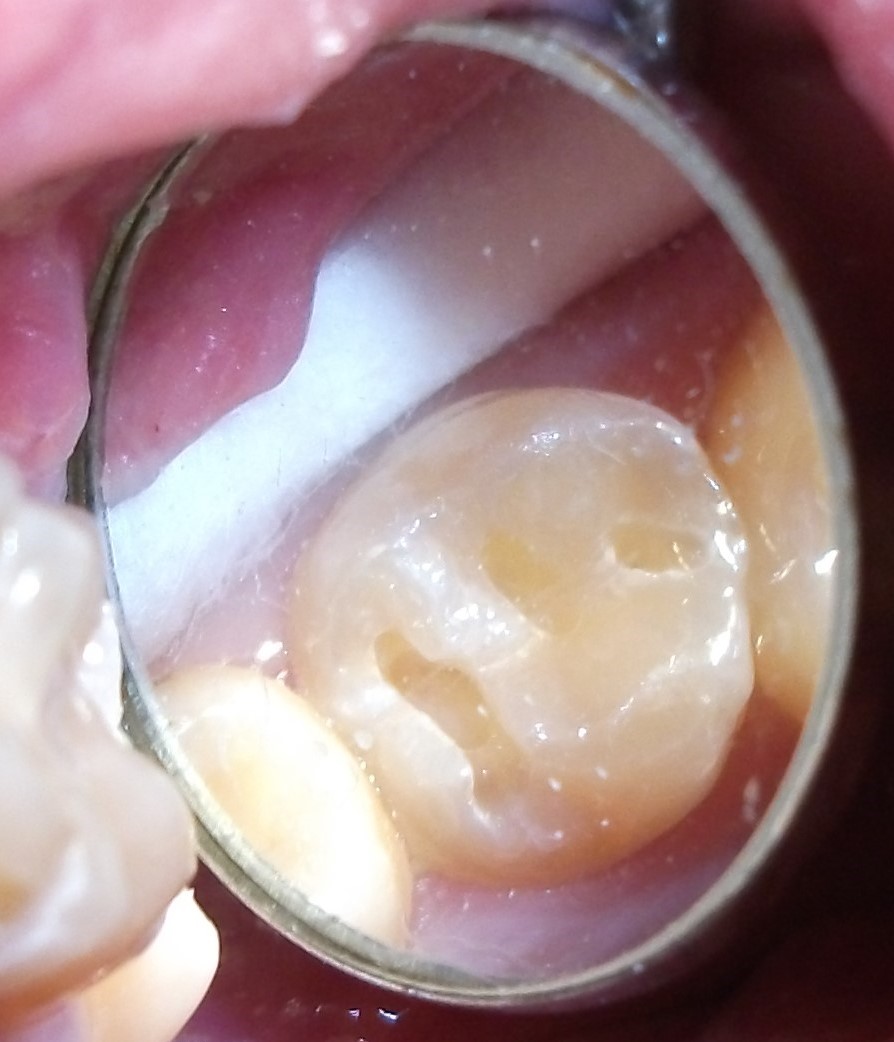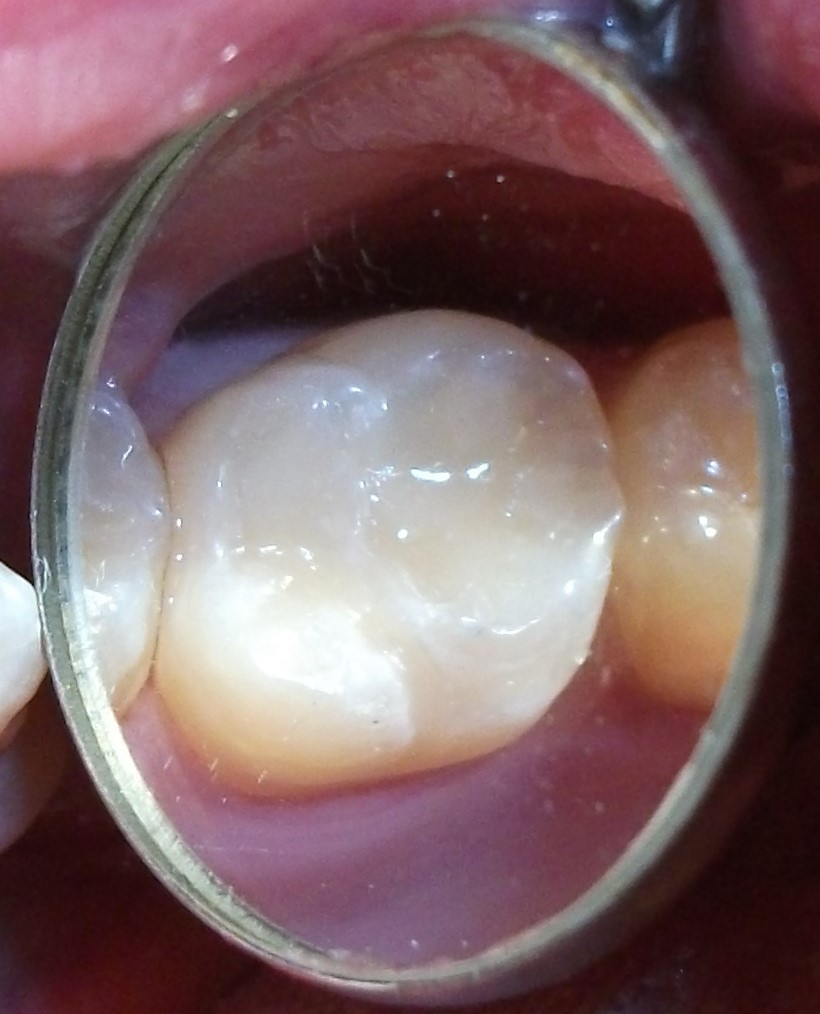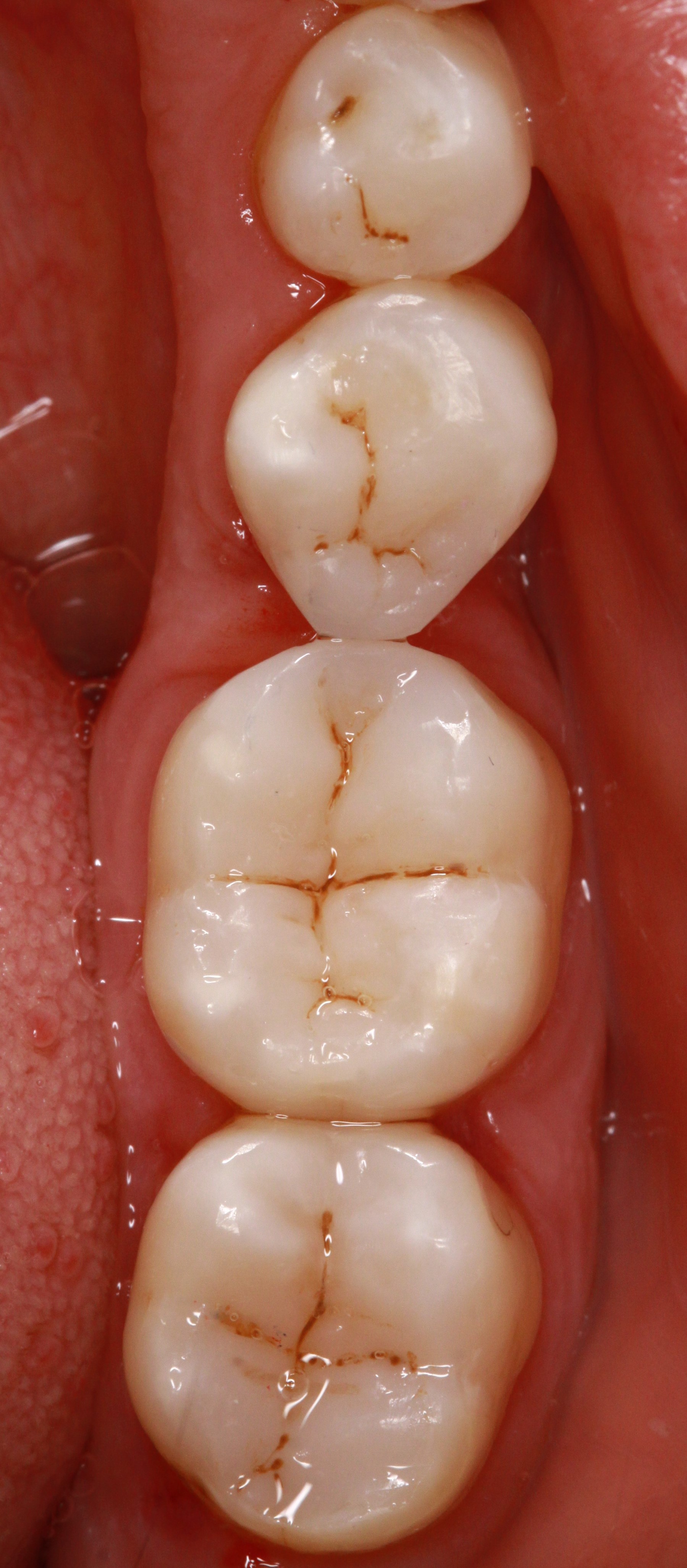Pulpitis
Pulpitis
Inflammation of the pulp is called pulpitis (plural: pulpitides).
Causes
On the one hand, infections are possible causes, mainly due to bacteria, e.g. in the course of crown, cervical or root caries or exposure of the pulp as a result of accidents. On the other hand, "sterile" types of pulpitis occur without the involvement of bacteria. These are caused by severe mechanical (contusion, rupture), chemical or thermal irritation (over-heating).
Extent/Localisation
The inflammation can be limited to one section of the pulp (partial p., e.g. in the coronal region), or affect the entire pulp (total p., often with periodontitis apicalis). As well as closed forms with intact pulp cavity (p. clausa), there are also exposed forms (p. aperta, pulp polyp).
Symptoms
Acute or chronic hypersensitivity to temperature, acid, contact, pressure (biting) or vibration (percussion/tapping) stimuli may occur, though it is also possible to have rest pain without any cause and sporadic or continuous complete freedom from pain. The results of the vitality test are generally negative after destruction of the nerve process in the pulp cavity, in some cases (wet gangrene) also false positive.
Severity/Process/Therapy
Reversible forms can be healed (by elimination of the cause); irreversible forms result in necrotic decay of the pulp tissue (gangrene). In these cases root treatment (endodontic treatment) is indicated.
Want to give it a try ...
... or need professional advice?
Get in touch with us or click Contact.
Word of the day
| English | German |
|---|---|
| interior of a crown | Kroneninnenfläche, Kroneninnenseite, Kroneninneres, Kronenlumen |
Focus text of the month
Composites also composite (from the Latin componere = to compose) are tooth-coloured filling materials with plastic properties used in dental treatment. In lay terms they are often referred to as plastic fillings, also erroneously sometimes confused with ceramic… Composites also composite (from the Latin componere = to compose) are tooth-coloured filling materials with plastic properties used in dental treatment. In lay terms they are often referred to as plastic fillings, also erroneously sometimes confused with ceramic fillings due to their tooth colour. After being placed in a cavity they cure chemically or by irradiating with light or a combination of the two (dual-curing). Nowadays, composites are also used as luting materials. The working time can be regulated with light-curing systems, which is a great advantage both when placing fillings and during adhesive luting of restorations. Dual-curing luting materials are paste/paste systems with chemical and photosensitive initiators, which enable adequate curing, even in areas in which light curing is not guaranteed or controllable. Composites were manufactured in 1962 by mixing dimethacrylate (epoxy resin and methacrylic acid) with silanized quartz powder (Bowen 1963). Due to their characteristics (aesthetics and advantages of the adhesive technique) composite restorations are now used instead of amalgam fillings.
The material consists of three constituents: the resin matrix (organic component), the fillers (inorganic component) and the composite phase. The resin matrix mainly consists of Bis-GMA (bisphenol-A-glycidyldimethacrylate). As Bis-GMA is highly viscous, it is mixed in a different composition with shorter-chain monomers such as, e.g. TEGDMA (triethylene glycol dimethacrylate). The lower the proportion of Bis-GMA and the higher the proportion of TEGDMA, the higher the polymerisation shrinkage (Gonçalves et al. 2008). The use of Bis-GMA with TEGDMA increases the tensile strength but reduces the flexural strength (Asmussen & Peutzfeldt 1998). Monomers can be released from the filling material. Longer light-curing results in a better conversion rate (linking of the individual monomers) and therefore to reduced monomer release (Sideriou & Achilias 2005) The fillers are made of quartz, ceramic and/ or silicon dioxide. An increase in the amount of filler materials results in decreases in polymerisation shrinkage, coefficient of linear expansion and water absorption. In contrast, with an increase in the filler proportion there is a general rise in the compressive and tensile strengths, modulus of elasticity and wear resistance (Kim et al. 2002). The filler content in a composite is also determined by the shape of the fillers.
Composite restorations Conclusion |

 Minimally-invasive preparation and
Minimally-invasive preparation and  indiscernible composite restoration
indiscernible composite restoration